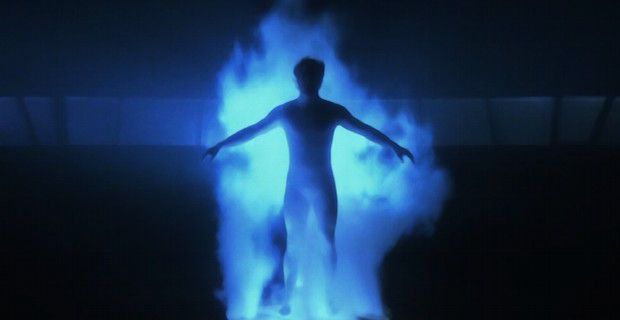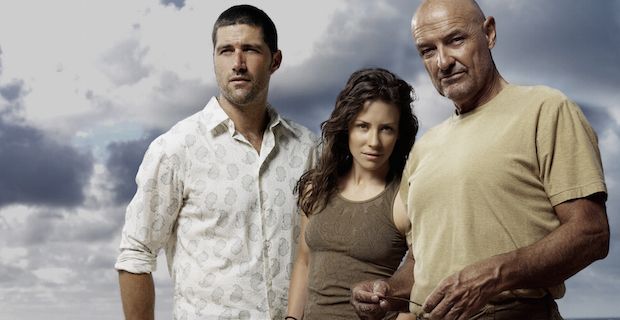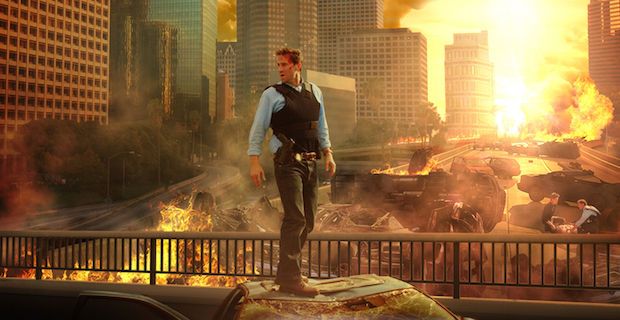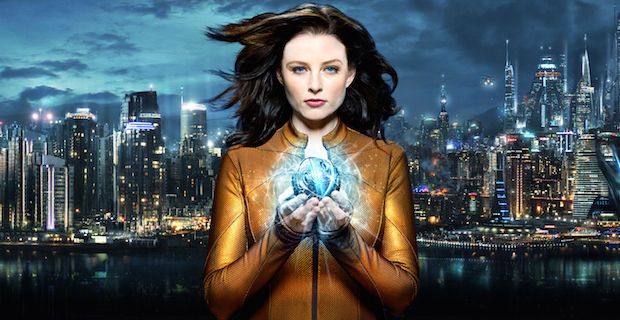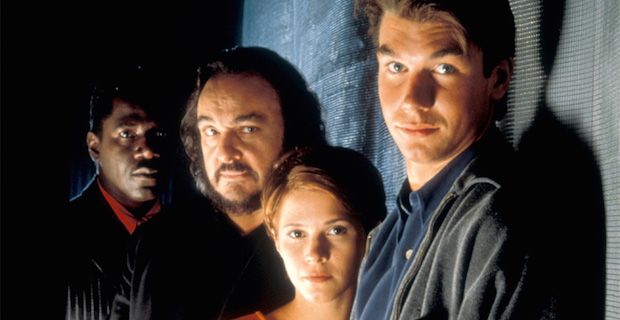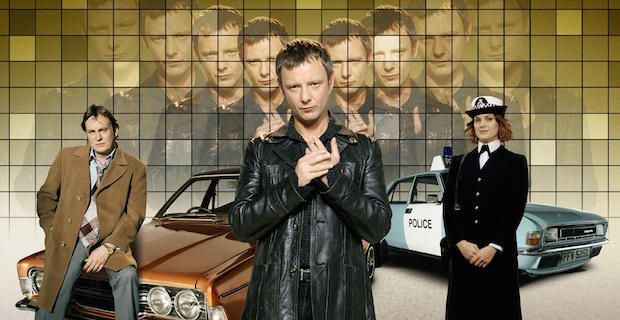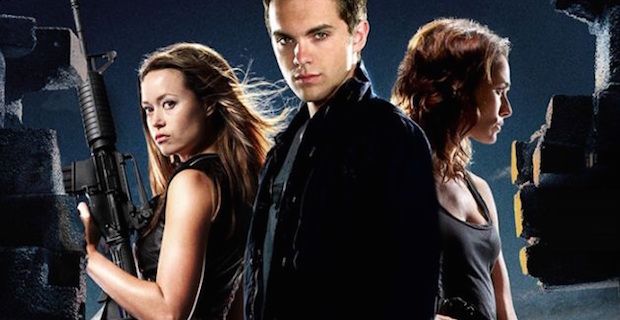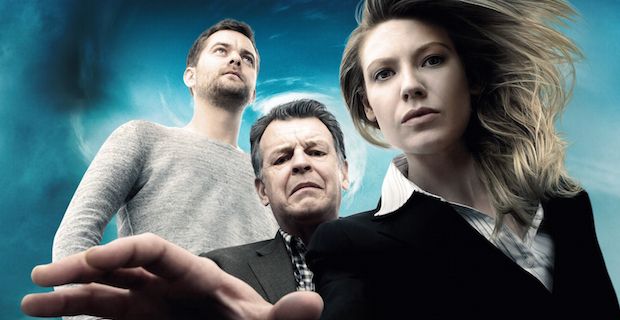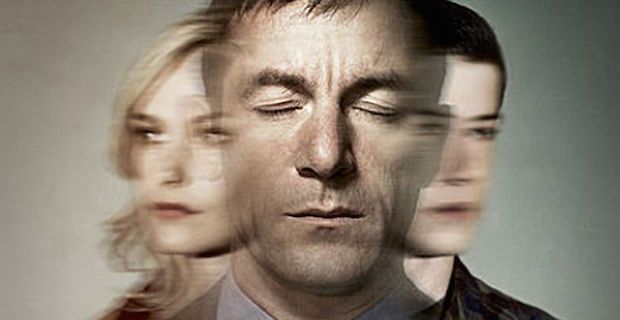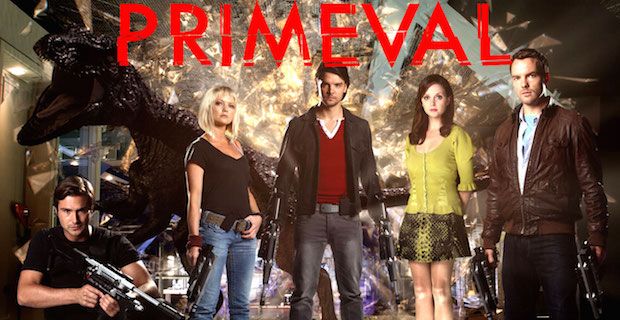Easily one of science fiction's most unstable can of worms, time travel also serves as the foundation for many of the genre's best stories - as heroes and villains attempt to alter the present by meddling in the past and (slightly less often) the future. Time travel and alternate realities have been a staple of novels, movies, and TV series for decades; however, recent years have seen the subject matter taken to new heights through the interactive video game medium - where players don't just travel back in time, they make unique decisions that can impact future events.
Recently, Dontnod Entertainment and Square Enix partnered to release Life is Strange - in which the game's protagonist, Max Caulfield, has the ability to travel in time and re-write her future. Of course, in spite of the benefits, Caulfield quickly realizes that even her most selfless attempts to change the past can still result in dire outcomes for the future. The game features plenty of the genre's most interesting moral and thematic touchstones - while forcing players to live with their decisions (and subsequent future realities), whether good or bad.
That got us thinking about our favorite time travel and alternate reality stories that were told on the TV screen? Our choices lie ahead. Note: our list has been organized by date of release - not countdown-style priority.
Of course, our list is not all-inclusive, so feel free to share your favorite TV series that center on time travel and/or alternate realities in the comment section. It goes without saying, this post may contain SPOILERS for all of the TV shows we've included in the list.
-
Doctor Who (1963-Present)
The Premise: A time-traveling alien (who looks human) adventures across space and time inside his ship, the TARDIS (permanently disguised/stuck as a blue police box). Along the way The Doctor visits ancient earth civilizations and advanced future worlds, among other sci-fi locales, in order to sate his curiosity, protect innocent lives, and impress his human friends (his companions).
Why Doctor Who is Great: Doctor Who was created with an extremely flexible premise - one that, week to week, featured entirely different settings (in time and space) and, year to year, fresh faces in both the companion and lead Doctor roles. Initial episodes of the series were intended to be educational, for young viewers, but over half-a-century later the show has developed into a mind-bending adventure story that kids and adults can both enjoy. Without question, there have been plenty of silly time-travel stories over the years, along with some genuinely great ones, but the show's sharp writing and heavy emphasis on regeneration (behind the scenes and on camera) ensure that Doctor Who can grow and evolve with the times. BBC's recent move from hipster-like hunks in the starring role to an older, more stern, version of the Doctor exemplify what is so great about the series - it is ever-changing (and always toying with expectations).
-
Quantum Leap (1989-1993)
The Premise: Fearful that his experiment will be shut down, physicist Sam Beckett (Scott Bakula) enters his experimental time-machine, the Quantum Leap accelerator, only to become stuck in the past - inside the body of a doomed jet pilot. With the help of his friend, in the future, Rear Admiral Al Calavicci (Dean Stockwell), Sam determines that righting the wrongs of the past is the only way for him to get back to his own time. Every time that Sam "leaps" he is faced with a new place and time, as well as a new person to save, with the ongoing hope that his next leap will return his consciousness home.
Why Quantum Leap is Great: Similar to Doctor Who, Quantum Leap was designed with a flexible premise - one that allows the same character to explore key moments in the past (and future) as well as gently alter reality for the better. However, while the show provided straightforward procedural entertainment, the series' greatest success was its ability to push boundaries in how viewers perceive the human condition - both good and bad - through outright showing what it is like to walk in another person's skin. The setup was most effective and apparent in episodes that saw Sam leap into the body of a black man in the segregated south or a dock worker with down syndrome, among other estranged members of society.
-
LOST (2004-2010)
The Premise: In the aftermath of a plane crash, the survivors of Oceanic Flight 815 begin to explore a seemingly uninhabited island in the middle of the pacific ocean - setting up shelters and securing provisions to keep the group alive until rescue arrives However, within a few episodes of the show's premiere, it becomes apparent that the Island is home to mysterious forces and inhabitants - capable of aiding and/or harming the survivors.
Why LOST is Great: While LOST did not center solely on time-travel or alternate reality, it dabbled heavily in both by the time the series ended. The introduction of Desmond Hume (Henry Ian Cusick) and Daniel Faraday (Jeremy Davies), especially, led to some genuinely high-brow sci-fi storytelling in primetime - as the LOST characters (and subsequently their audience) tried to unpack mind-bending time-travel traits and theories (course-correction and the constant, among others). The time-shifting elements came full circle when Ben Linus (Michel Emerson) "moved" the island - which not only made for an interesting story arc, it also provided the framework for LOST's writing team to layer new context into past events on the island. Additionally, while not outright time travel, the flashback/flashforward/flashsideways format of the program, which juxtaposed on-island character struggles with corresponding storylines that occurred in the past, present, and future, was instrumental in developing nuanced arcs within the core cast over time.
-
FlashForward (2009-2010)
The Premise: When nearly everyone on earth blacks out for exactly 137 seconds, most (not all) are given an unexplainable glimpse six months into their future. As each person struggles to make sense of their own future, especially as it relates to their current circumstances, a Los Angeles branch of the FBI is assigned to investigate the blackout's cause. At the center of the investigation is Mark Benford (Joseph Fiennes) whose flash-forward included out of context glimpses at a case board - which the agents attempt to reassemble piece by piece in order to solve the central question: if/when will another black out occur?
Why FlashForward is Great: Riding the wave of high concept science-fiction shows on primetime, following the success of LOST, FlashForward only lasted for one season. Yet, despite a number of shortcomings, the series presented a fascinating, and largely unexplored, concept to network TV viewers: how personal knowledge of the future could destroy present contentment or give conviction to those in need of direction. With only brief out-of-context flashes to guide them, the characters of FlashForward were challenged to chase or deter their previewed futures - providing intriguing insight into how we, often, take the present for granted in fear/hope of what is to come. The series ultimately failed in its effort to be a "must watch" primetime show but, those that stuck with FlashForward until the end were treated to an ambitious sci-fi concept that raised interesting questions - though it often struggled to turn those concepts into cohesive narrative TV viewing.
-
Continuum (2012-Present)
The Premise: After a massive terrorist attack, targeting the North American Union, kills thousands of innocent lives in the year 2077, the perpetrators of the attack (known as Liber8) escape capital punishment - by escaping into the past (via a time travel device). However, City Protective Services officer Kiera Cameron (Rachel Nichols) is inadvertently caught in the device's reach - transporting her, along with the terrorist group, back to the year 2012. With the help of Vancouver police detectives, Kiera tracks down the escaped convicts - who, led by Edouard Kagame (Tony Amendola), are actively attempting to change the future and prevent the corporatocratic control of world governments.
Why Continuum is Great: Even though Continuum riffs heavily on ideas that have been explored in numerous time travel stories across a wide variety of mediums (example: the ability to change the future by altering past events), the Canadian series also includes several thought-provoking twists and insights - along with engaging performances from the main cast. It might not be the most original time travel story ever told but Continuum successfully builds on a solid foundation laid by earlier/similar premises - while differentiating its narrative and characters in a variety of interesting ways. Those looking for a brain-twisting tale of time travel and its potential consequences may not find a ton of new ideas in the series but viewers who tuned in week after week have been rewarded with an entertaining cast, slick production, heartfelt storylines, and thought-provoking sci-fi quandaries.
-
NEXT PAGE: TV's Best Mind-Bending Alternate Realities
-
Sliders (1995–2000)
The Premise: When Quinn Mallory (Jerry O'Connell) refines vortex technology, allowing humans to "slide" between parallel universes, the budding physicist, along with his friend, Wade Wells (Sabrina Lloyd) and singer Rembrandt "Cryin' Man" Brown (Cleavant Derricks), as well as mentor, Professor Maximillian Arturo (John Rhys-Davies), are pulled into the subsequent wormhole - and stranded in an ongoing parade of alternate Earths (with drastically varying circumstances, terrains, and inhabitants). After each slide, the group must race against the clock to learn about a new variation of Earth and solve any obstacles that would prevent them from re-entering the vortex. Should they fail, they'll be stuck for 29.7 years in the new universe; should they succeed, they'll be one slide closer to (hopefully) returning to their Earth home.
Why Sliders is Great: Like Quantum Leap before it, the biggest strength of Sliders (in addition to a likable cast) was the show's ability to reflect aspects of modern culture - by heightening reality through science fiction scenarios (via parallel realities). While there were plenty of silly episodes, designed to highlight just how different Earth could be, given minor differences in the past that resulted in enormous ramifications on the future (dinosaurs avoided extinction or the British defeated America in the Revolutionary War), the show's most poignant installments managed to communicate universal truths about the human condition. To that end, some of the most engaging (and memorable) episodes of the series actually featured variations of Earth that were closely aligned with our reality - albeit a few key differences (men are considered the weaker sex and, as a result, Hillary Clinton was President in 1995 not Bill).
-
Life on Mars (BBC: 2006-2007 & ABC: 2008-2009)
The Premise: After being hit by a car in the present (2006/2009) lawman Sam Tyler awakens to find himself in the exact same spot over thirty years in the past - specifically 1973. While Tyler is aware of the abrupt shift in time, he awakens with a 1970s police badge, wearing period clothing, and driving a retro Chevrolet Chevelle. Unsure of what is actually happening to him (is he dead, a time traveler, or going crazy?), Tyler assumes the role of a police transfer and, in between solving cases, begins investigating his unexplainable situation.
Why Life on Mars is Great: While both the BBC and ABC Life on Mars TV series share a similar premise, there are some key differences: lead actor (John Simm/Jason O'Mara), location (Manchester/New York), present date (2006/2009), and the final explanation for Tyler's time hop, among others. Nevertheless, both series provided an interesting twist on the police procedural sub-genre - while, by their respective conclusions, toyed with heady sci-fi ideas (that had been supplanted into the mix from the very beginning). Most viewers agree that ABC's Life on Mars ultimately fell short with an unsatisfying explanation - despite success in executing the core 1970s procedural storyline; whereas, BBC managed to provide viewers with some genuinely brainy (and heartfelt) concepts to ponder in its finale. In fact, the BBC series was successful enough in blending drama and alternate reality rumination that the network greenlit a sequel series, Ashes to Ashes, which added further insight into the true nature of Tyler's circumstances.
-
Terminator: The Sarah Connor Chronicles (2008-2009)
The Premise: Continuing where Terminator 2: Judgement Day left off, The Sarah Connor Chronicles follows the ongoing adventures of Sarah Connor (Lena Headey) and her future freed0m fighter son, John (Thomas Dekker), as they attempt to stay alive - in spite of a never-ending string of homicidal cyborgs sent back to kill them. Tracing the same lines as previous Terminator films, the Connors are joined in their fight by allies both human, Derek Reese (Brian Austin Green) and Terminator, Cameron (Summer Glau), among others - on a quest to survive and destroy a pre-SkyNet AI computer system.
Why Terminator: The Sarah Connor Chronicles is Great: While The Sarah Connor Chronicles doesn't outright feature multiple parallel universes, rewriting reality is (and has always been) the main plot of the franchise. To that end, The Sarah Connor Chronicles is no exception - taking Kyle Reese's original claim that "the future is not set. There is no fate but what we make" while presenting the Connors (and humanity's future) with bigger and more threatening dangers (especially in the form of Garret Dillahunt's T-888). Unfortunately, the series only lasted two seasons, and ended on an unresolved cliffhanger that (mostly) compromises the show's place in the larger Terminator continuity; still, thanks to some Battlestar Galactica-like twists (specifically Terminators hidden in plain sight), The Sarah Connor Chronicles provides an engaging standalone time-travel story as well as a worthwhile chapter in the larger tale of SkyNet attempting to re-write reality (via altering past events).
-
Fringe (2008-2013)
The Premise: Following the death of her partner (and lover), Agent Olivia Dunham (Anna Torv) is recruited by the FBI's Fringe Division - charged with investigating (and studying) crimes that cannot be explained by conventional forensics. With the help of a genius (but often unstable) research scientist Dr. Walter Bishop (John Noble) and his son Peter Bishop (Joshua Jackson), Olivia is pulled into a world filled with monsters, biological weapons, alternate timelines, and parallel universes. Together, the Fringe Division team works toward eliminating threats to our Earth - be they terrestrial or from another dimension.
Why Fringe is Great: Initially Fringe started out its run as a relatively straightforward procedural - albeit one that relied heavily upon brainy science fiction ideas. Even as a straightforward show, with a case of the week, the series was an entertaining watch; however, the show's season 1 finale cracked the Fringe world wide open - when Olivia visits a parallel universe version of Manhattan (and eventually encounters alternate versions of the main cast). At times, the series' reach overextended its grasp but, over the course of several seasons, the show delivered genuinely fresh sci-fi ideas (and thoughtful drama) to primetime TV - painting the Fringe world(s) as a place of quirky characters and grey morality (much like the process of scientific discovery). Thanks to the parallel universe setup, along with its inhabitants, Fringe characters could look into the eyes of their doppelgänger to understand how past experiences and choices influenced the people they became (for better or worse).
-
Awake (2012)
The Premise: After LAPD detective Michael Britten (Jason Isaacs) and his family are injured in a car accident, the detective awakens from a coma and is faced with two competing realities: one where his son survived the wreck (and his wife died); the other, where his wife lived (but his son was killed). However, due to the hyper-realistic nature of each world, Britten is unable to determine which one is real life and which is a dream. Every time he goes to sleep, he wakes up in the other reality; while counselors in each reality attempt to prove their side is the actual one, Britten becomes increasingly dependent on the shared existence - knowing that if he ever figures out what is real and what is a dream, he'll be forced into a final goodbye with either his son or his wife.
Why Awake is Great: Even though it received mostly positive praise, Awake was limited by the network to 13 episodes - which, thankfully, complete Britten's story. As a result, the show provides an engaging and heartfelt storyline that is easily digestible over a few days of binge watching. At times, the show struggled in its efforts to weave cop show storylines between both realities (where events in one led to revelations in the other); however, Awake succeeds in its chief endeavor: making smart use of its central premise while also delivering some genuinely impactful human drama. The show commits to its premise - forcing Britten to overcome unique obstacles in both realities (the loss of a child and the affect it has on a marriage in one, the loss of a partner and the challenges of single parenthood in the other). To that end, even when the procedural elements of the show are heavy-handed, Isaacs' portrayal of a man torn between two worlds (and loved ones) supplies an ambitious and sincere viewing experience.
-
Honorable Mentions
There are plenty of TV shows filled with time travel and alternate realities but here are few more that we wanted to highlight:
- Twilight Zone (1959-1964)
- Day Break (2006)
- Primeval (2007-2011)
- Journeyman (2007-Present)
- Hindsight (2015-Present)
-
MORE: 10 Time Travel Movies We’d Never Want To Experience
As mentioned, our list is not all-inclusive, and we're interested to hear which time travel/alternate reality TV shows are your favorites. Share your picks in the comments!
If you wish to experience Life is Strange (and its blend of satisfying, guilt-free cruelty and second chances) yourself, episode 1 and 2 of the game are available now for PC, PS3, PS4, Xbox 360 and Xbox One.
Check out a trailer for the game below, and for more information head to its official website:



